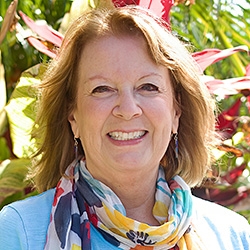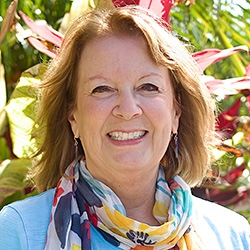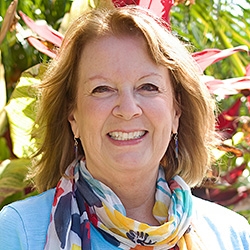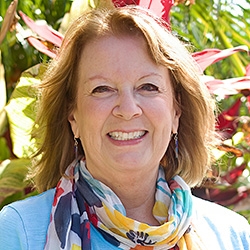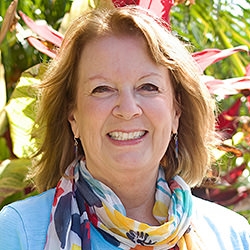
Search Results: focusing
-
Trainer Tip: When you suspect someone is lying, consider how it may be less important what the truth is. Instead, notice whether your need for trust is met. Without blame, nor labelling. you can make specific requests to meet your needs, while also respecting the other person’s needs. Read on for more.
-
- Learn concrete tools for engaging with others as you embrace individual and collective liberation
- Find your own source of choice even in the face of challenges
- Release the constriction of scarcity
- Find an empowered option to respond to what is happening in our world
- Open the door to the possibility of thriving rather than merely surviving
-
Trainer Tip: Mary explains the NVC principle known as the "protective use of force."
-
-
The heart of the practice of nonviolence is a commitment to live through the powerful combination of compassion, fierceness, and courage, with an uncompromising willingness to stand for truth. Join Miki Kashtan for this exciting and informative course to learn how to practically embrace nonviolence.
-
We're more likely to sacrifice trust, connection, and relationship quality when (1.) We use NVC to focus on being seen, understood, heard, or meeting our own needs in a way that eclipses our view and understanding of others needs; (2.) We don't clearly examine our intentions; and (3.) We use the NVC form so rigidly that it becomes difficult for others to connect with us authentically.
-
Trainer Tip: Sometimes we need to empathize with a person before he can hear our anger. Consider that all anger is an expression of an unmet need. If we focus on the need, rather than the actions, we are more likely to connect compassionately with other people. Be aware of opportunities to empathize with someone’s anger today.
-
Often when someone else does something we don't like, it's easy to blame the other person. After all, we have all been trained to focus on fault when needs are not met. What can we do to shift that pattern?
-
Ask the Trainer: "I recently attended an NVC workshop where the focus was entirely upon empathy, and expressing honestly was not covered. Aren't empathy and honesty both vital NVC components?"
-
This holiday, shift your focus from what disappoints you to the true whisperings of your heart. Compassion is an inside-outside process. In this telecourse recording, you will experience four simple tools for savoring your own precious needs, allowing you to experience greater compassion and harmony this holiday.
-
Listen to Miki discuss two strategies for bringing NVC into the workplace in ways most likely to be well received. First Miki explains why it's best to focus more on needs than feelings in business environments. Second, she talks about unpacking needs into phrases as a way of enhancing workplace connection.
-
For many people thinking about creating a workshop outline is overwhelming because they focus on the whole thing at once. Breaking the process down to bite-size pieces eliminates much stress and overwhelm and brings fun and creativity to the process. here's your step-by-step guide!.
-
Miki responds to a 2014 NVC in Business Conference participant’s question concerning the focus on needs over other aspects of NVC in business communication.
-
Jim and Jori’s Zero Step helps you focus your attention on your intention to connect, and then affirms your intention to live in the present. Listen in as they demonstrate the process — and learn about the benefits of using and cultivating it!
-
When someone expresses upset about our actions, and we focus on our intention being seen and understood (e.g. "I didn’t mean to hurt you”) it doesn't support the speaker in being heard more deeply with care. Here we'll explore this dynamic in a way that supports more clarity and the possibility of greater personal liberation. Read on for more.
-
This one page colour handout illustrates the focus options or intention options for connection: empathy (verbal and non-verbal), self expression, and self connection (opening our heart to self and/or others). It also offers some suggestions for how to say these things to self and others.
-
Codependency occurs when others' behavior affects us in unhealthy ways and we get obsessed with controlling their behavior. For example, we may focus on other's needs while neglect what matters to us, and resent it. Or we may depend on others to rescue us from results of our actions. Or we may fix or rescue others' neglected responsibilities. Or we may make others responsible for our needs. Instead, notice your needs, what you can('t) change, and your priorities.
-
Marshall Rosenberg used to talk about every situation with the same level of joy a child might feel. This may seem impossible at first! But when you focus on all the ways something is hard, you miss out on the full experience and remove your sense of choice. In this video, Mary shares several benefits of positivity and lots of examples along the way.
-
- Explore what makes the capacity lens radical and practical
- Understand the complexities of how capacity and willingness interface
- Mourn capacity limits within and around us without jumping to conclusions
- Orient to agreements as behavioral anchoring in support of your commitments
-
- Understand the destructive dynamics that keep love from blossoming
- Learn how to deal with expectations, disappointments, and judgment
- Transform guilt, shame, and obligations into a flow of creativity
- Find out what tiny details are preventing natural love to flow!v

